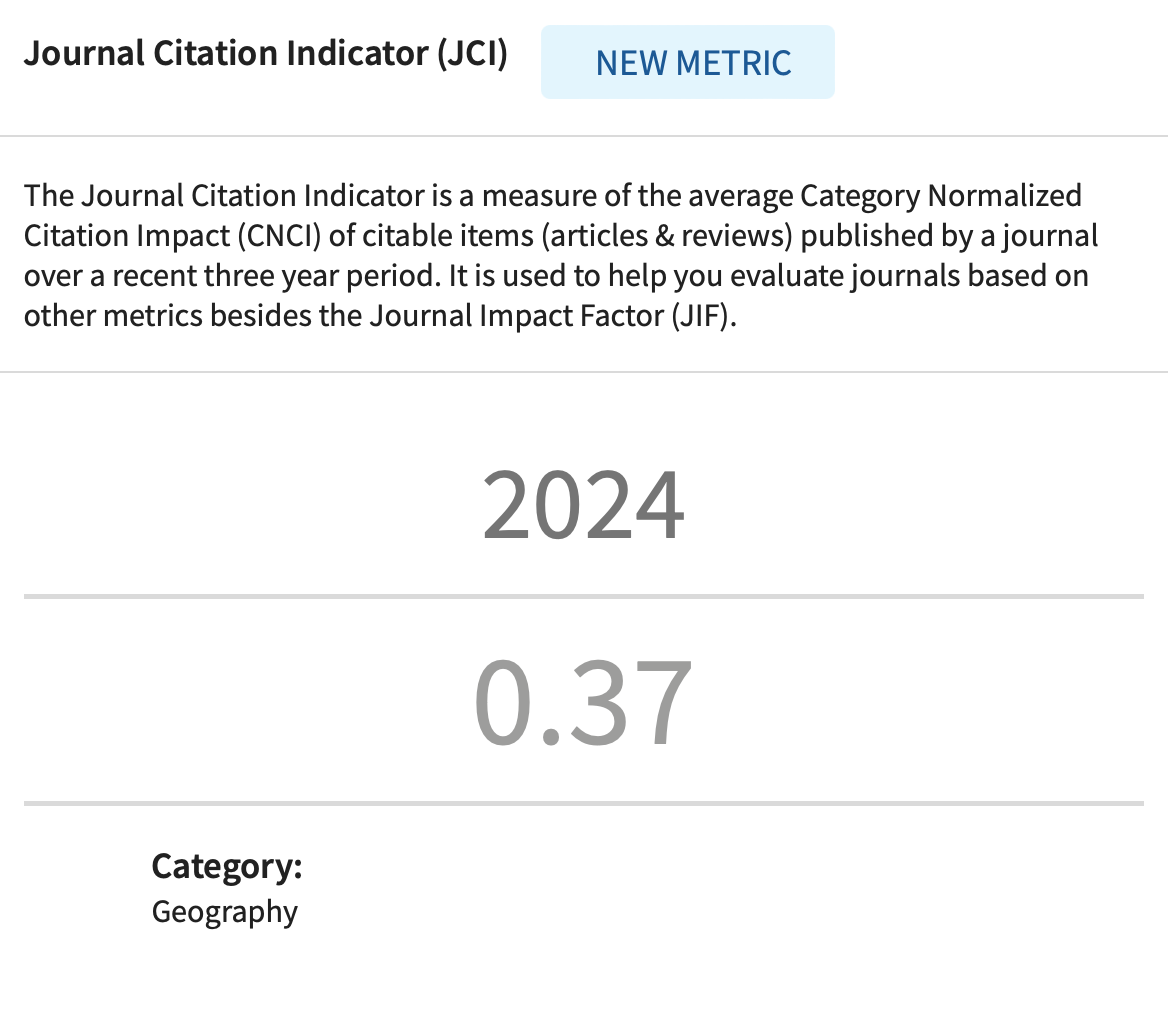AESTHETIC PROPERTIES OF GEOLOGICAL HERITAGE LANDSCAPES: EVIDENCE FROM THE LAGONAKI HIGHLAND (WESTERN CAUCASUS, RUSSIA)
DOI:
https://doi.org/10.2298/IJGI1802289RKeywords:
natural beauty, geological heritage, geotourism, landscape perception, CaucasusAbstract
Beauty adds value to unique geological features because the former is important for tourist emotional satisfaction. Aesthetic properties of geological heritage landscapes (landscapes dominated by unique geological phenomena) should be distinguished from their aesthetic attractiveness. Field studies permit ranging all basic aesthetic properties according to their local importance. The same information allows realizing appearance of the properties, which can be either positive or negative. The aesthetic properties of a world-class geosite representing ancient carbonate platform and diverse karst features, namely the Lagonaki Highland (western part of the Greater Caucasus Mountains) are examined. It is established that the Lagonaki Highland has physical parameters that determine a specific set of aesthetic properties. Three most important aesthetic properties of the studied object are openness, pattern, and uniqueness. These properties match the expected tourists’ idea of beauty, and, thus, the geological heritage landscape of the Lagonaki Highland is characterized by significant aesthetic attractiveness, which is important for tourism development.
Article metrics
References
Cetin, M., Zeren, I., Sevik, H., Cakir, C., & Akpinar, H. (2018). A study on the determination of the natural park’s sustainable tourism potential. Environmental Monitoring and Assessment, 190,167. doi: https://doi.org/10.1007/s10661-018-6534-5
Chen, Y., Sun, B., Liao, S. B., Chen, L., & Luo, S. X. (2016). Landscape perception based on personal attributes in determining the scenic beauty of in-stand natural secondary forests. Annals of Forest Research, 59, 91–103. doi: https://doi.org/10.15287/afr.2015.440
Earle, R. (2015). Is natural beauty the given? Environmental Ethics, 37(1), 3–19. doi: https://doi.org/10.5840/enviroethics20153712
Farina, A., Gage, S. H., & Salutari, P. (2018). Testing the ecoacoustics event detection and identification (EEDI) approach on Mediterranean soundscapes. Ecological Indicators, 85, 698–715. doi: https://doi.org/10.1016/j.ecolind.2017.10.073
Gordon, J.E. (2018). Geoheritage, geotourism and the cultural landscape: Enhancing the visitor experience and promoting geoconservation. Geosciences, 8(4), 136. doi: https://doi.org/10.3390/geosciences8040136
Han, K.–T. (2010). An exploration of relationships among the responses to natural scenes: Scenic beauty, preference, and restoration. Environment and Behavior, 42(2), 243–270. doi: https://doi.org/10.1177/0013916509333875
Henriques, M. H., & Brilha, J. (2017). UNESCO Global Geoparks: a strategy towards global understanding and sustainability. Episodes, 40(4), 349–355. Retrieved from http://hdl.handle.net/1822/48010
Jiang, J., Zhang, J., Zhang, H., & Yan, B. (2018). Natural soundscapes and tourist loyalty to nature-based tourism destinations: the mediating effect of tourist satisfaction. Journal of Travel and Tourism Marketing, 35(2), 218–230. doi: https://doi.org/10.1080/10548408.2017.1351415
Kirillova, K., Fu, X., Lehto, X., & Cai, L. (2014). What makes a destination beautiful? Dimensions of tourist aesthetic judgment. Tourism Management, 42, 282–293. Retrieved from http://www.sciencedirect.com/science/journal/02615177
Liu, A., Wang, X. L., Liu, F., Yao, C., & Deng, Z. (2018). Soundscape and its influence on tourist satisfaction. Service Industries Journal, 38(3-4), 164–181. doi: http://dx.doi.org/10.1080/02642069.2017.1382479
Lozovoj, S. P. (1984). Lagonaki Highland (Lagonakskoe nagor'e). Krasnodar: Krasnodarskoe knizhnoe izdatel'stvo (in Russian).
Migoń, P. & Pijet-Migoń, E., (2017). Viewpoint geosites - values, conservation and management issues. Proceedings of the Geologists' Association, 128(4), 511–522. doi: https://doi.org/10.1016/j.pgeola.2017.05.007
Mikhailenko, A. V., Nazarenko, O. V., Ruban, D. A., & Zayats, P. P. (2017). Aesthetics-based classification of geological structures in outcrops for geotourism purposes: a tentative proposal. Geologos, 23(1), 45–52. doi: https://doi.org/10.1515/logos-2017-0004
Prosser, C. D. (2013). Our rich and varied geoconservation portfolio: The foundation for the future. Proceedings of the Geologists’ Association, 124(4), 568–580. doi: https://doi.org/10.1016/j.pgeola.2012.06.001
Putland, R. L., Constantine, R., & Radford, C. A. (2017). Exploring spatial and temporal trends in the soundscape of an ecologically significant embayment. Scientific Reports, 7(1), 5713. doi: https://doi.org/10.1038/s41598-017-06347-0
Reiter, A., & Geiger, I. (2018). Natural Beauty, Fine Art and the Relation between them. Kant-Studien, 109(1), 72–100. doi: https://doi.org/10.1515/kant-2018-0002
Ren, X., Kang, J., Zhu, P., & Wang, S. (2018). Effects of soundscape on rural landscape evaluations. Environmental Impact Assessment Review, 70, 45–56. doi: https://doi.org/10.1016/j.eiar.2018.03.003
Ruban, D. A. (2010). Quantification of geodiversity and its loss. Proceedings of the Geologists' Association, 121(3), 326–333. doi: https://doi.org/10.1016/j.pgeola.2010.07.002
Schirpke, U., Tasser, E., & Tappeiner, U. (2013). Predicting scenic beauty of mountain regions. Landscape and Urban Planning, 111, 1–12. doi: https://doi.org/10.1016/j.landurbplan.2012.11.010
Zhang, C. (2006). Geological heritage's functions and their relationship from the view of the world heritage. Beijing Daxue Xuebao (Ziran Kexue Ban) / Acta Scientiarum Naturalium Universitatis Pekinensis, 42(2), 226–230.
Downloads
Published
How to Cite
Issue
Section
License
Copyright (c) 2018 Journal of the Geographical Institute “Jovan Cvijić” SASA

This work is licensed under a Creative Commons Attribution-NonCommercial-NoDerivatives 4.0 International License.











